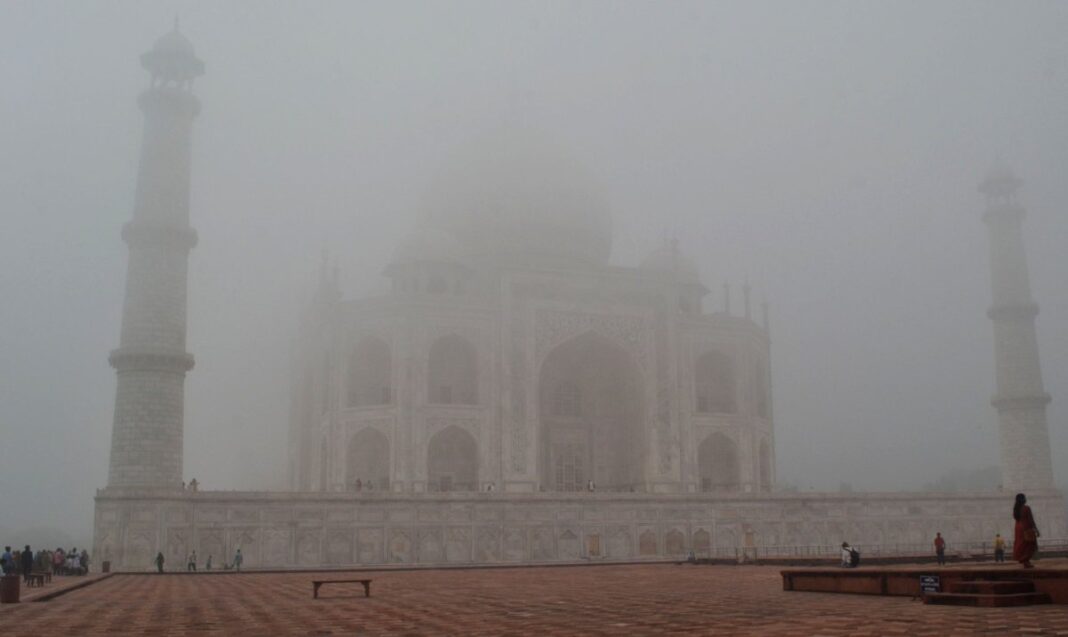NEW DELHI: Residents of Agra, home to India’s most famous monument Taj Mahal, have renamed some of the city’s housing complexes to “stinking town” and “gutter colony” in a protest against unhygienic living conditions.
The northern city, which is one of the country’s biggest tourist destinations, was in 2016 included in the Indian government’s Smart Cities Mission to develop physical, institutional, social and economic infrastructure to improve the quality of life.
But in some parts of Agra, residents say no improvement has materialized since.
Those living in over 20 housing complexes of the colonies of Shahganj, Jagdishpura, Panchsheel, Navneet Nagar and Mansarovar blame unfinished roads in the area for causing waterlogging resulting in a foul smell.
“For a long time, we have been asking the authorities to complete the unfinished roads, but no one has bothered to address it. As a result, the broken road now has turned into a filthy lake, and we have to cross this stinking water-filled road every day to go out of the colony,” Raj Pal Singh, a retired air force officer from Mansarovar colony, told Arab News.
The road construction began in 2009, but works soon stopped and never resumed, despite promises from local authorities.
“Our local legislator and parliamentarians gave us assurances many times, but nothing has worked so far,” Singh said. “In anger, we decided to name the colony as ‘gutter colony.'”
The protest in which residents repainted street boards and changed the names of their neighborhoods began in early October.
In Panchsheel colony, which is now “smelly colony,” retired banker Bahuran Singh sees what he and others have been facing since 2009 amounts to “inhuman” treatment.
“In the rainy season, the whole area gets waterlogged and no guests, no taxis, not even ambulances can come to these colonies,” he said. “The idea of changing the name is to draw the attention of the authorities and politicians and shame them.”
But local authorities say the neighborhoods were built without securing all the necessary permits.
“These are illegal colonies and don’t fall under our jurisdiction,” Chakreshwar Jain of the Agra Development Authority told Arab News. “We don’t have the mandate to address the illegal colonies.”
The residents are confused over the legality issue as for the past 25 years lawmakers would regularly visit them to secure their votes.
“If we are illegal colonies, then why are we counted as voters here and why do politicians come to seek our votes and assure us to address the problem?” said Lata Sharma, a resident of Mansarovar.
Singh said local legislators and parliamentarians have failed them, adding: “In the next elections, we will teach them a lesson.”




